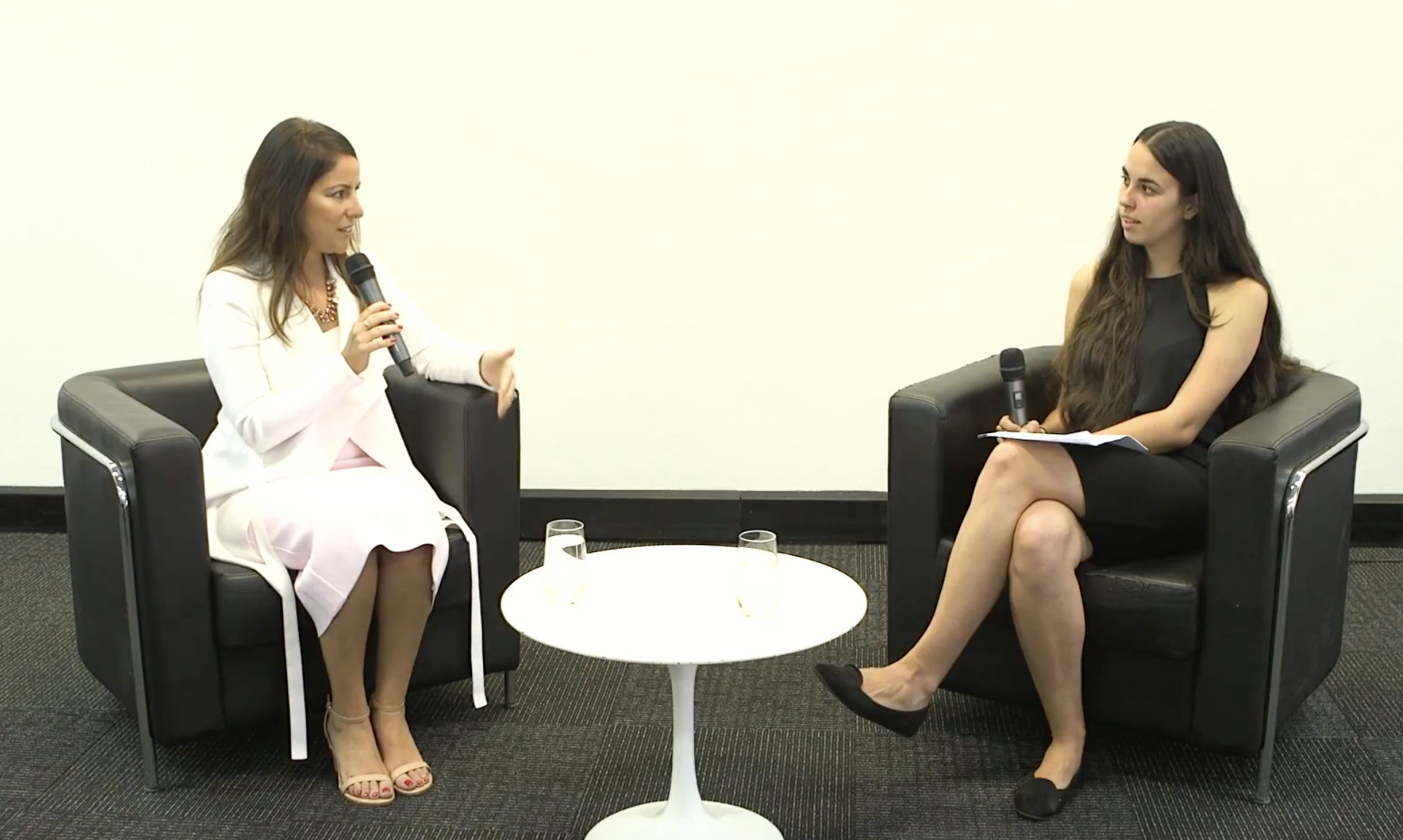She is well known in media circles but Daily Telegraph political reporter Sharri Markson dislikes the term “controversial reporter” because of its negative connotations.
Markson is proud of her pursuit of truth and boasts the title of News Limited’s Young Journalist of the Year as well as Walkey Award winner, from her time as a producer at Channel 7.
The daughter of PR powerhouse Max Markson grew up in a house full of publicists. Ironically this inspired her to pursue journalism.
“[It] made me hate the spin that was put on stories,” she said.
“I think seeing that behind the scenes, up close, I really was committed to telling the truth.”
With a history of political reporting Ms Markson said she got around perceptions of bias by never voting in a public election: “So that I don’t go through the process about who I would vote for [so] that it wouldn’t influence my reporting.”
Markson broke the Barnaby Joyce story early this year, which revealed the former deputy prime minister’s affair and subsequent pregnancy of one of his staffers, Vikki Campion.
The story sparked debate around the nation as to whether it was in the public interest – a debate Markson believes was “wrong”.
“I also did the story on Bill Shorten leaving his wife for Chloe Bryce … and Bill Shorten didn’t speak to me for years after I ran that story,” she said.
“It (the Barnaby Joyce story) was always going to be public; the politicians just may not be comfortable with it at the time, but it is always going to be in the public domain.”
Markson’s stories have sparked outrage more than once. During her time reporting for The Sunday Telegraph she was scrutinised for showing up with flowers at a hospital, appearing visibly distressed, to gain access to a victim of the 2005 London bombings.
The story was discussed on Media Watch. But Markson maintains it was an interview professor John Tulloch wanted to give.
“Other media in the UK got the shits. How did an Australian journalist get access when you’re meant to go through PR protocol?
“It is more difficult then ever to get around PR people. People want to speak but you can’t get to them.”
Markson became media editor at The Australian in 2014 and was known for her dare I say “controversial” coverage of other media outlets such as the ABC and Fairfax.
“People have said to me that it has damaged my career and that I’ve made a lot of enemies,” she said.
Markson does not believe social media is necessary to her journalism, admitting she uses it only as a platform to share her stories.
“I think it’s still quite small compared to say the media outlet I work for, The Daily Telegraph, which has a lot of readers,” she said.
She faces trolls on a regular basis, with a disclaimer on her Twitter profile that “trolls will be blocked”. True to her word she has blocked about 800 people to date.
“No one has the right to abuse me. It’s not criticism, it’s not constructive, it’s not something someone will say to you face to face. No one ever speaks to you face to face like they do on Twitter,” she said.
Despite the at-times very public ups and downs, Markson has maintained her love of journalism throughout her career, insisting it is the best job there is.
“Say there’s a big event that happens and you have burning questions, you are in the position to put those questions to the very people at the top and they just have to answer you as a journalist. That’s such a privilege,” she said. – Nikolina Matijevic@Nina_Matijevic1


